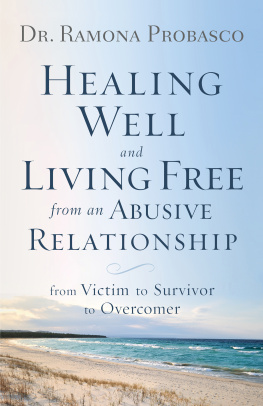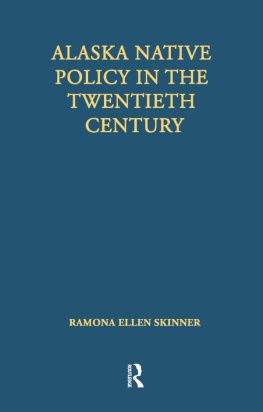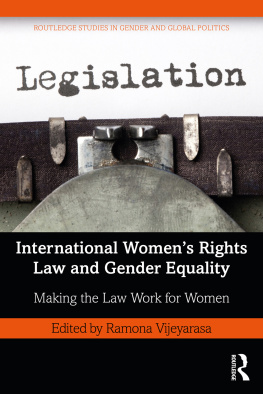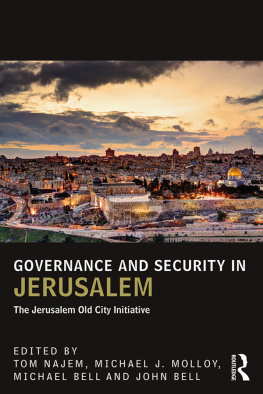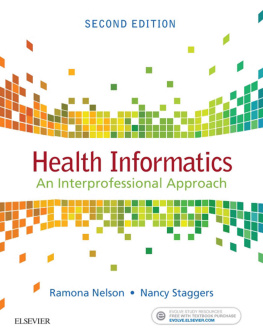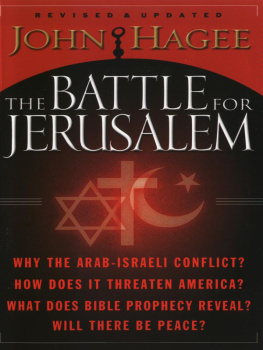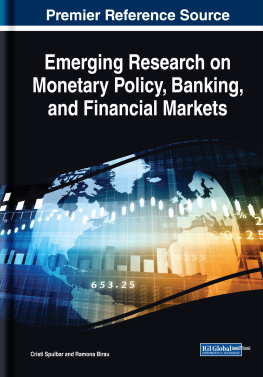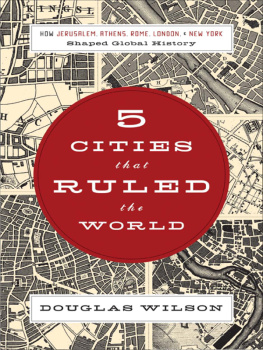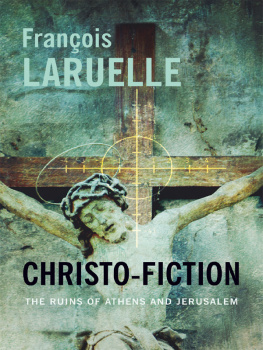Fotiade Ramona - Athens and Jerusalem
Here you can read online Fotiade Ramona - Athens and Jerusalem full text of the book (entire story) in english for free. Download pdf and epub, get meaning, cover and reviews about this ebook. year: 2016, publisher: Ohio University Press, genre: Science. Description of the work, (preface) as well as reviews are available. Best literature library LitArk.com created for fans of good reading and offers a wide selection of genres:
Romance novel
Science fiction
Adventure
Detective
Science
History
Home and family
Prose
Art
Politics
Computer
Non-fiction
Religion
Business
Children
Humor
Choose a favorite category and find really read worthwhile books. Enjoy immersion in the world of imagination, feel the emotions of the characters or learn something new for yourself, make an fascinating discovery.

- Book:Athens and Jerusalem
- Author:
- Publisher:Ohio University Press
- Genre:
- Year:2016
- Rating:4 / 5
- Favourites:Add to favourites
- Your mark:
- 80
- 1
- 2
- 3
- 4
- 5
Athens and Jerusalem: summary, description and annotation
We offer to read an annotation, description, summary or preface (depends on what the author of the book "Athens and Jerusalem" wrote himself). If you haven't found the necessary information about the book — write in the comments, we will try to find it.
Athens and Jerusalem — read online for free the complete book (whole text) full work
Below is the text of the book, divided by pages. System saving the place of the last page read, allows you to conveniently read the book "Athens and Jerusalem" online for free, without having to search again every time where you left off. Put a bookmark, and you can go to the page where you finished reading at any time.
Font size:
Interval:
Bookmark:
Athens & Jerusalem
Athens & Jerusalem
LEV SHESTOV
Translated, with an introduction, by Bernard Martin
SECOND EDITION
Edited, with a new introduction and annotations, by Ramona Fotiade
OHIO UNIVERSITY PRESS
ATHENS
Ohio University Press, Athens, Ohio 45701
ohioswallow.com
First edition 1966 by Ohio University Press
Second edition 2016 by Ohio University Press
New introduction 2016 by Ramona Fotiade
All rights reserved
To obtain permission to quote, reprint, or otherwise reproduce or distribute material from Ohio University Press publications, please contact our rights and permissions department at (740) 593-1154 or (740) 593-4536 (fax).
Printed in the United States of America
Ohio University Press books are printed on acid-free paper 
26 25 24 23 22 21 20 19 18 17 16 5 4 3 2 1
Library of Congress Cataloging-in-Publication Data
Names: Shestov, Lev, 18661938, author. | Martin, Bernard, 1928 translator, writer of introduction. | Fotiade, Ramona, editor, writer of introduction.
Title: Athens and Jerusalem / Lev Shestov ; translated, with an introduction, by Bernard Martin.
Other titles: Afiny i Ierusalim. English
Description: Second edition / edited, with a new introduction and annotations, by Ramona Fotiade. | Athens, Ohio : Ohio University Press, 2016. | Includes bibliographical references and index.
Identifiers: LCCN 2016040552| ISBN 9780821422199 (hardback) | ISBN 9780821422205 (pb) | ISBN 9780821445617 (pdf)
Subjects: LCSH: ReligionPhilosophy. | Philosophy and religion. | BISAC: PHILOSOPHY / General. | PHILOSOPHY / Movements / Phenomenology. | PHILOSOPHY / Movements / General.
Classification: LCC BL51 .S52273 2016 | DDC 210dc23
LC record available at https://lccn.loc.gov/2016040552
To Nancy, Rachel, and Joseph Martin
Quid ergo Athenis et Hierosolymis?
Tertullian
Contents
by Ramona Fotiade
by Bernard Martin
by Bernard Martin
by Lev Shestov
INTRODUCTION TO THE SECOND EDITION
Lev ShestovThe Thought from Outside
Ramona Fotiade
An influential forerunner of French Existentialism, best known for his unique blend of Russian religious philosophy and Nietzschean aphoristic thought, Lev Shestov (18661938) elaborated a radical critique of rational knowledge from the point of view of individual existence. His view of philosophy as the most worthy ( ) was inspired by Plotinuss flight beyond reason and knowledge in order to grasp the meaning of life, free from the constraints of logical and ethical thinking, which pose death as the ultimate limit of temporal existence.
One of the precursors of the generation of Absurdist playwrights and essayists (most notably acknowledged in the works of Camus and Ionesco), Shestov fought against the disparagement of real, individual beings and personal experience in a world rendered absurd by the drive toward absolute knowledge and scientific objectivity. He saw the effects of the dehumanizing search for mathematical certainty in the gradual confinement of philosophical investigation to abstract, logical matters, which culminated in Husserls phenomenology. Philosophy as rigorous science (defined along the principles of Kants Critique of Pure Reason) not only confirmed the nonexistence of real, temporal entities, from the point of view of scientific thought, but also restated the equivalence between thought and true being, on the one hand, and true being and meaning, on the other. Within this framework, the search for truth becomes a search for meaning (achieved through intentional constitution), and whatever cannot be constituted in the same manner as mathematical objects (e.g., the rule of 2 x 2 = 4), or concepts (such as the idea of table in general), falls outside the category of true being and has no intelligible meaning and no place in philosophical discourse. Shestov sought to restore the rights of the living individual against the rise of the scientific mentality that discarded insoluble metaphysical questions and viewed life in a necessary relationship to death and destruction.
If he frequently recalled Platos definition of philosophy as practice for death and meditation on dying, Shestov did so in order to remind readers and contemporary philosophers that reflection on ultimate realities is not a disinterested pursuit of knowledge but a constant struggle against the logical certainty of ones fleeting passage through time and eventual annihilation. Philosophy, in Shestovs view, is more akin to a combat strategy, a fight against self-evidence (which echoes the revolt of Dostoevskys underground man against the rule of 2 x 2 = 4 as a principle of death), and leads to spiritual awakening. The notion of awakening, which Shestov takes up from Plotinus, corresponds to the second sight that man acquires when the corporeal eyes begin to lose their sharpness (according to Platos Symposium 219A). This metaphorical description of a shift in ones thinking points to the fact that the soul lies sleeping in the body, and that it takes a considerable effort to change the way one normally sees the world, a process which Shestov compares with the experience of a dreamer struggling to awaken from a nightmare. Two contradictory, yet equally convincing, perceptions of reality are confronted in the dreamers consciousness: one places the subject in an impersonal environment, which is indifferent to human suffering and desires, and within which events pursue their course in an implacable manner; the other opens up the possibility of freeing oneself from logical principles and awakening to a reality in which the cries of Job and of the Psalmist are heard and answered. However curious this may seem, as Shestov remarks, the impression of internal consistency and necessity accompanies not only the dreamers absurd experience of the world (as he imagines, for instance, that he is the Emperor of China and that... he is engraving monograms on the surface of a sphere with one dimension only) but also the perception of the world of the man who is only guided by reason in the waking state and who cannot conceive the existence of a reality unfettered by the laws of causality, temporal irreversibility, and death.
We are like sleepwalkers in a world whose logic and a priori principles seem unsurpassable and prevent us from seeing the incongruities and arbitrary connections which make up the fabric of our daily lives. It takes an extraordinary effort of the will to break the spell of self-evident truths and awaken from the nightmare of ones powerless submission to misfortune, injustice, suffering, and death. Being able to reject Spinozas Stoical injunction do not laugh, do not curse or mourn, but understand amounts to a radical choice: a choice confronting every individual who has become aware of the unbearable nature of the human condition. One can either try to come to terms with the logical necessity of death or refuse to accept the a priori law of temporal existence and adopt instead the contradictory belief that man is destined for a higher lot, and that he can overcome death. This opposition between two modes of thinking and two philosophical traditions is perfectly captured by Tertullians famous dictum (What has Athens to do with Jerusalem?), which serves as a springboard for Shestovs argument in his final and most compelling essay of religious philosophy.
Written over a period of twelve years and published shortly before the authors death in 1938, Shestovs philosophical testament, Athens and Jerusalem, sets up a gripping confrontation between the two symbolic poles of ancient wisdom: Athens (i.e., Greek thought as source of Western European philosophy) and Jerusalem (i.e., the Judeo-Christian tradition based on Biblical revelation). Before Shestov made it his favorite theme of reflection, the tension between rational analysis and faith had been a subject of theological debate and literary writing from the early Fathers of the Church to the founder of modern existential philosophy, Sren Kierkegaard. Shestovs project of a study devoted to the philosophy of religion and inspired by Tertullians remark dates back to 190910, when Shestov was writing his article on Tolstoy (entitled Destroyer and Builder of Worlds) and working on a book on Luther,
Next pageFont size:
Interval:
Bookmark:
Similar books «Athens and Jerusalem»
Look at similar books to Athens and Jerusalem. We have selected literature similar in name and meaning in the hope of providing readers with more options to find new, interesting, not yet read works.
Discussion, reviews of the book Athens and Jerusalem and just readers' own opinions. Leave your comments, write what you think about the work, its meaning or the main characters. Specify what exactly you liked and what you didn't like, and why you think so.



